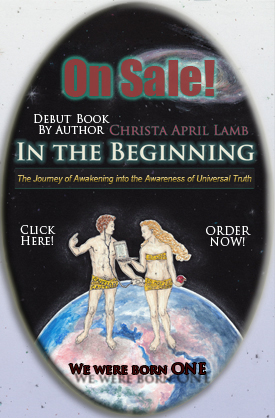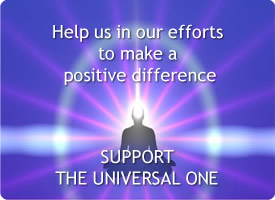The Healing Spin: Selling the Hope through Hype
Selling the Hope through Hype
Article by E. Strauss
 Has anyone ever told you the dangers of Dihydrogen Monoxide? It is a potentially harmful inorganic compound that can be deadly if inhaled and if consumed may cause uncontrollable urination and in large enough quantities may even cause brain damage. It is a contributing factor to the green house effect and has been linked to global warming as well as been discovered in malignant tumors of cancer patients as well as acid rain samples. It is used primarily for nuclear power plant operation as well as in the agricultural community as a solvent for pesticides. It is also a key component for any laboratory that does medical testing on animals. More can be found at this scientific advisory from this company that makes scientific equipment.
Has anyone ever told you the dangers of Dihydrogen Monoxide? It is a potentially harmful inorganic compound that can be deadly if inhaled and if consumed may cause uncontrollable urination and in large enough quantities may even cause brain damage. It is a contributing factor to the green house effect and has been linked to global warming as well as been discovered in malignant tumors of cancer patients as well as acid rain samples. It is used primarily for nuclear power plant operation as well as in the agricultural community as a solvent for pesticides. It is also a key component for any laboratory that does medical testing on animals. More can be found at this scientific advisory from this company that makes scientific equipment.
Sounds terrible, this horrible chemical that is so dangerous, why won’t anyone take up the cause to stop it? Because if you understand basic chemistry, you will know that the term “Di” in a chemical compound indicates 2 parts, while “Mon” indicates one. So Dihydrogen Monoxide would be two parts hydrogen, one part oxygen, otherwise known as water.

Is water actually that terrible? No, even though, what was posted above is all true, but it the way I wrote about it makes it sound like it’s going to kill you. Because that is the art of spinning hype, the ability to take something completely mundane and make it sound more dangerous than it actually is. It is how people use fear and misdirection to manipulate the public. However it also works the other way around as well. Hype can just as easily take something rather mundane and make it sound more magical than it really is. I present a case in point, acai berries.
Now acai berries do have a lot going for them, they are a terrific source of anti-oxidants and a good source of Vitamin A. They taste good and make pretty good juice as well. They even have been given the rank of “super-food” being given the same prestige as wild salmon, Greek yogurt and leafy greens. But then the hype happened. Acai berries were marketed as weight loss supplements and could cure everything from erectile dysfunction to diabetes. The hype was so powerful that even Oprah and Dr Mehmet Oz endorsed the acai berries as a must have in your daily diet. People around the world started buying in to the hype. It didn’t take long before claims surfaced that acai berries didn’t cure anything. They were proven to be very high in anthocyanins and flavonoids, which are anti-oxidants and can protect cellular structure from free radicals. Free radicals are molecules which your body produces when it breaks down food. Free radicals occur in the environment as well and have been linked to cellular damage and heart disease. Anti-oxidants can in fact help prevent heart disease and cancer, but so can tomatoes and blueberries, in the same way. It has not been proven that anti-oxidants help with weight loss, or prevent or could treat diabetes, Parkinson’s Disease, male pattern baldness, or any of the other claims were marketed with acai berries. All that could be shown were inconclusive studies which said that anti-oxidants may or may not contribute to weight loss.
 Which if spun correctly means that acai berries, being so high in anti-oxidants, may contribute to weight loss more than any other food, and since a high body weight is linked to things like diabetes and high blood pressure, then acai berries help lower blood pressure and prevent diabetes. It didn’t matter if the claims could be proven. It was all in advertising and endorsements. But the snake oil pitch couldn’t last forever.
Which if spun correctly means that acai berries, being so high in anti-oxidants, may contribute to weight loss more than any other food, and since a high body weight is linked to things like diabetes and high blood pressure, then acai berries help lower blood pressure and prevent diabetes. It didn’t matter if the claims could be proven. It was all in advertising and endorsements. But the snake oil pitch couldn’t last forever.
In August of 2009 both Oprah and Dr Oz sued over 40 companies to get their names taken off of endorsements and testimonials of acai berry products. Stating at no time did they actually endorse any specific product.
In September of 2010, the Federal Trade Commission went after Central Coast Nutraceuticals alleging their free trial offer was a scam and that the CCN charged customers without their consent for a full month supply of acai berry supplements during the free trial offer.
In April of 2011, the Federal Trade Commission issued cease and desist orders to 10 websites to stop using deceptive advertising and false news testimonials as endorsement of acai berries.
The FTC also issued a consumer alert about how people marketing acai berries use websites with names that sound like local news affiliates in order to lure people in to investing in acai berries.
So remember, there are a lot of people out there who want your money more than they want you to feel better. Falling for these scams and believing too much of the hype can cause even more stress in your life. Remember to always check in with reputable health and wellness web sites when it comes to any claim any new product makes. Always research any nutritional supplement or food extract to be sure of what it can and cannot do for you, and don’t fall for the hype, because as the old saying goes, if it’s too good to be true, it probably is.









